The 28-year-old star of France’s resurgent far right
Marine le Pen’s protege Jordan Bardella is soft-spoken, social-media savvy, and just 28. If National Rally prevails at the June elections, he’s also positioned to become prime minister.
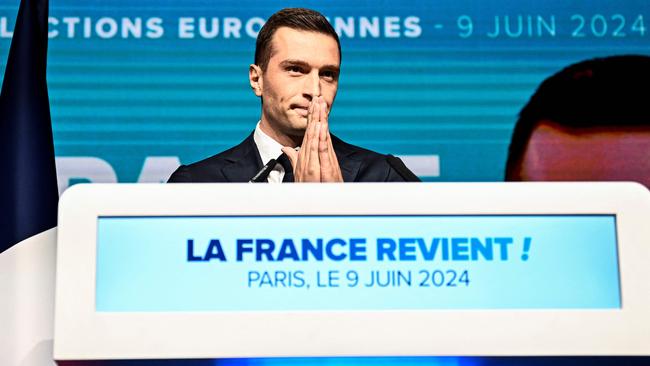
For a glimpse into what the future holds for nationalist parties that are now ascendant across Europe, look no further than Jordan Bardella.
At 28 years old, the French politician is soft-spoken, social-media savvy and apparently unbothered by the historical baggage that has long weighed down his political mentor, Marine Le Pen.
On Sunday, Bardella led Le Pen’s far-right opposition party, National Rally, to its biggest victory ever in European elections, prompting President Emmanuel Macron to dissolve France’s National Assembly and call snap elections in late June and early July. If National Rally prevails at the ballot box in that contest, Bardella is positioned to become prime minister.
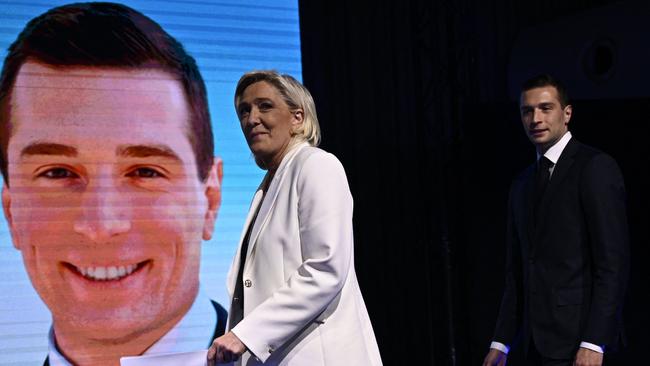
Bardella’s victory Sunday drew upon a wellspring of support he has cultivated among younger generations of French voters who – removed from the horrors of World War II – are largely tuning out Macron and his attempts to link Europe’s newest nationalists to the authoritarian movements of the 20th century. A survey of 3,001 people by pollster Elabe found that 32 per cent of those ages 19-34 voted for Bardella on Sunday, compared to 5 per cent for Macron’s candidate.
Public anxiety over the possibility of far-right forces rising to power – as they once had in Nazi Germany, Fascist Italy and Vichy France – has been a defining feature of French elections for decades, helping to drive turnout among voters who delivered Macron the presidency twice.
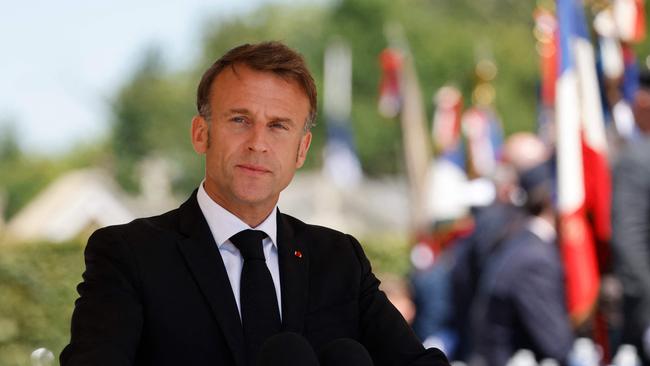
In calling early elections, Macron is betting that a similar coalition of voters from mainstream conservative and leftist parties will once again back him in a “republican front” to keep National Rally out of power. It is a significant gamble that risks hobbling Macron’s presidency right as France prepares to host the Summer Olympics. Macron’s party has previously benefited from France’s two-round election system, which allows voters who first cast ballots for a losing candidate to then rally behind a different one, typically a mainstream candidate, in the run-off.
The stigma around National Rally, however, has begun to fade with every passing election. National Rally maintains its strident anti-immigrant stance, but its ideas are no longer fringe. Bardella, meanwhile, is a nimble politician who thrives at threading the needle between National Rally’s dark past and his own ambitions to push the party into the mainstream.
Bardella made a point of attending a march against antisemitism that was held after the Oct. 7 attacks on Israel. Days before, a television interviewer asked him whether Jean-Marie Le Pen – co-founder of the party and father of Marine Le Pen – was an antisemite. In the 1980s, Jean-Marie Le Pen had notoriously described Nazi death camps as a mere “detail” of history – a claim he repeated in 2015.
“I was born in 1995. You’re talking to me about an era I didn’t experience,” Bardella said, before adding: “I don’t believe Jean-Marie Le Pen is an antisemite. Now I obviously wouldn’t make the comments he made about the ‘detail’ because, for me, the horrors of the Holocaust aren’t a detail of history.” While Bardella is a political protégé of Marine Le Pen, he doesn’t bear the political weight of her family’s name. Instead, he has made a name for himself on Tiktok and other social-media platforms, where clips of his repartee with political opponents tend to go viral.
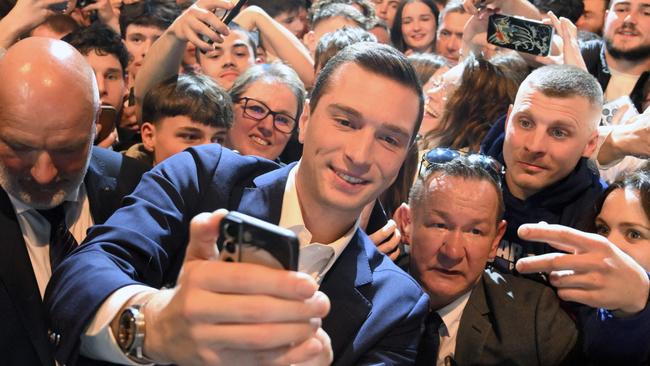
When Macron outraged French farmers with a plan to reduce diesel-fuel subsidies as part of his efforts to encourage France’s economy to go green, Bardella turned up at Paris’s annual agricultural fair and was greeted like a rock star, petting livestock and posing for selfies with giddy fairgoers – images that flooded the internet.
Such moments have earned him the nickname of “Monsieur Selfie” among his opponents. His supporters refer to him as “the perfect son-in-law.”
“He’s very, very good,” said Lucas Fluckiger, a 24-year-old engineer in the construction industry in eastern France – where National Rally won big. Fluckiger said he plans to vote for Bardella in the snap elections because he is the only candidate who can tackle immigration and crime. “He knows how to talk to young people about important issues. How to find them on social media,” Fluckiger added.
Bardella has another advantage over his mentor. Le Pen was often at pains discussing her upbringing, having grown up in the shadow of her father and the controversies he engendered. Bardella, however, is leaning into his life story.
He grew up in a low-income housing project in Saint-Denis, one of the blighted banlieues near Paris. Suburbs such as Saint-Denis have been the home of France’s Muslim minorities for decades, making them a fulcrum for France’s socio-economic tensions. Crime and drug-trafficking are common features of life in the banlieues, as are incidents of police brutality.
“That’s where I forged my first political convictions, because like many families and people who live in these neighbourhoods, I’ve been confronted with violence and the difficulty of making ends meet,” Bardella said.
Bardella wasn’t simply a product of the banlieues. In Saint-Denis, Bardella lived with his mother, a nursery-school worker of Italian descent. After his parents divorced, however, he would spend weekends and holidays with his father, who ran a small business and lived in a more affluent Paris suburb. Bardella attended private school in Saint-Denis, and went on to study geography at the Sorbonne University before dropping out.
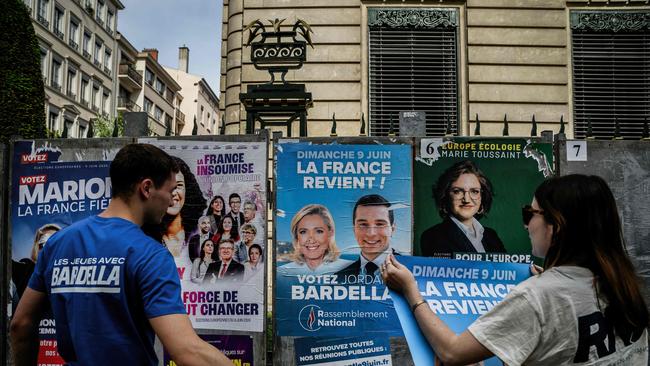
In 2014, Bardella began to rise through the ranks of Le Pen’s party, becoming its general secretary to its branch in the Saint-Denis area. Five years later he became spokesman of the entire party, leading it to victory in European elections, albeit by a much smaller margin.
When Le Pen decided in 2021 to step down as the party’s president so that she could focus on her campaign to unseat Macron, Bardella stepped in to succeed her on an interim basis. He then cemented that role by trouncing Louis Aliot, a party veteran and Le Pen’s former partner, in an internal party vote.
Today Bardella has become the party’s heir apparent to Marine Le Pen, a position that was solidified when Le Pen had a falling out with her niece Marion Maréchal.
On Monday, a top National Rally official said Bardella would be the party’s choice for prime minister if National Rally manages to win the coming national elections. Such an outcome, though unlikely, would cripple Macron’s presidency, forcing him into a power-sharing scenario known as cohabitation.
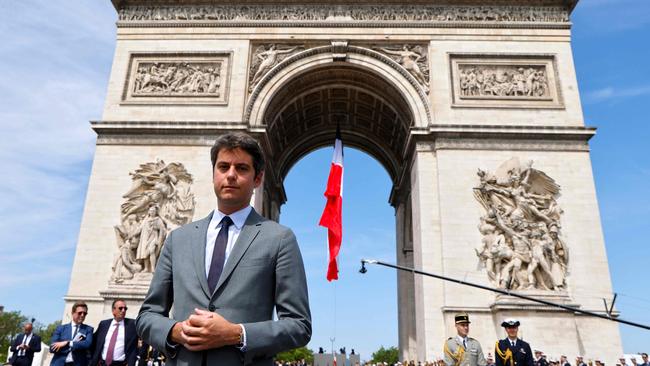
In the run-up to Sunday’s European elections, Macron mobilised his own protégé, 35-year-old Prime Minister Gabriel Attal, to hold a one-on-one debate with Bardella in a sign of Bardella’s growing stature.
Attal tried to embarrass Bardella over National Rally’s decision in 2016 to take a EUR9.4 million – or roughly $10 million – loan from a Russian bank, a move that Attal said made the party beholden to Russian President Vladimir Putin. The comment was a replay of a line of attack Macron used to stymie Le Pen during their debate in the 2022 presidential campaign.
This time, however, Bardella parried the critique and responded with a glancing reference to Macron’s own struggles to maintain dialogue with Putin at the start of the Ukraine war.
“Was there naivete with respect to Vladimir Putin, with respect to the intentions of Vladimir Putin? The answer is ‘yes,’ ” Bardella said, adding that the naivete came “from everyone. From my side but also from yours.”
Dow Jones


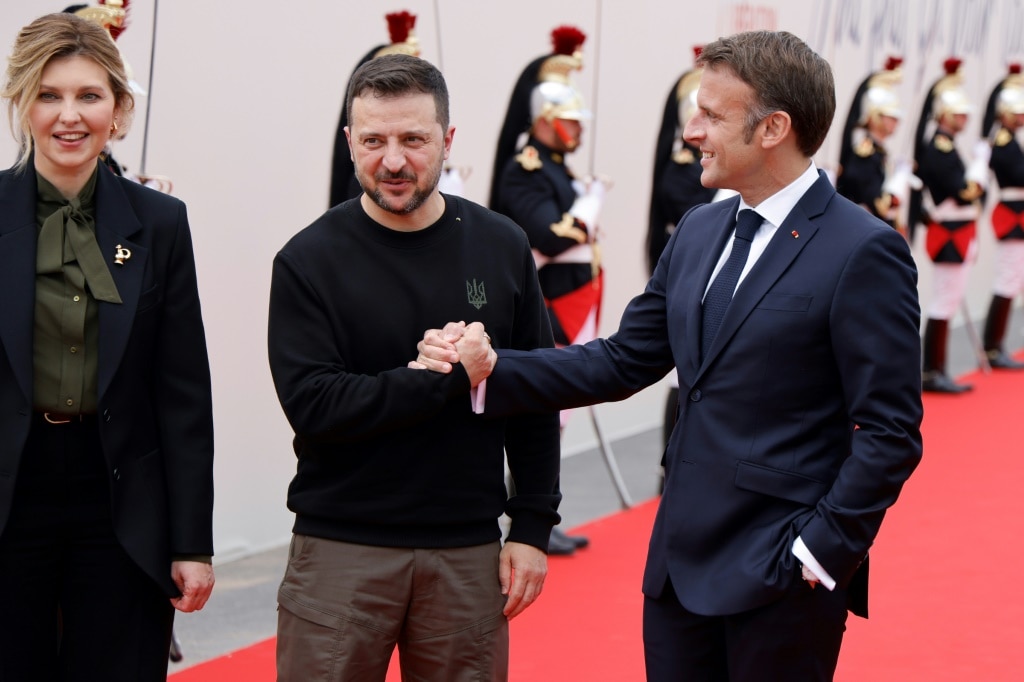

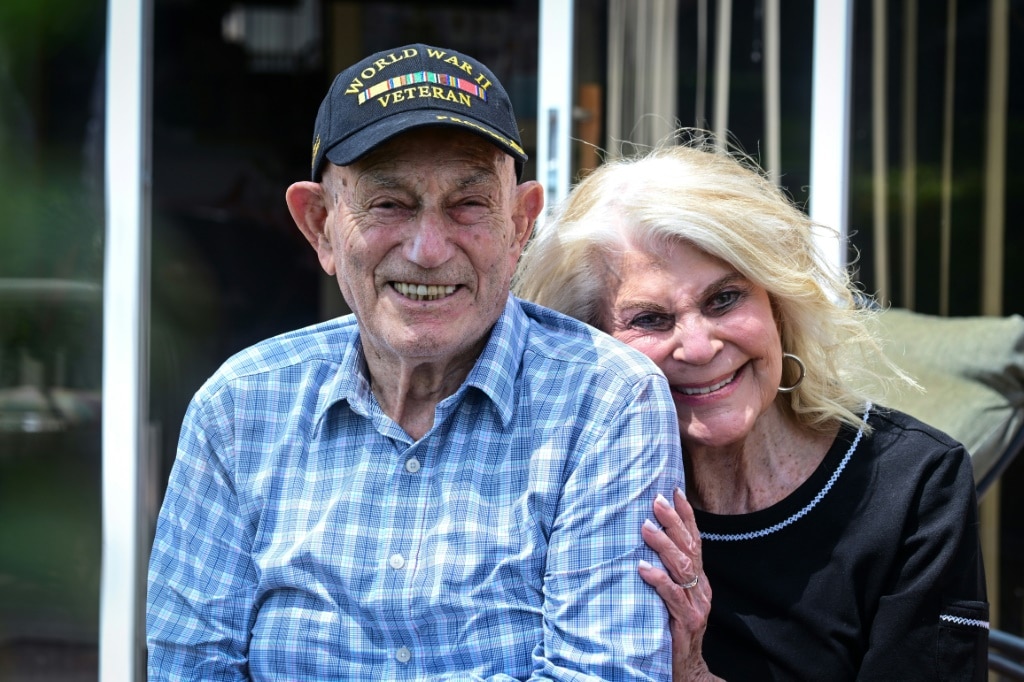


To join the conversation, please log in. Don't have an account? Register
Join the conversation, you are commenting as Logout